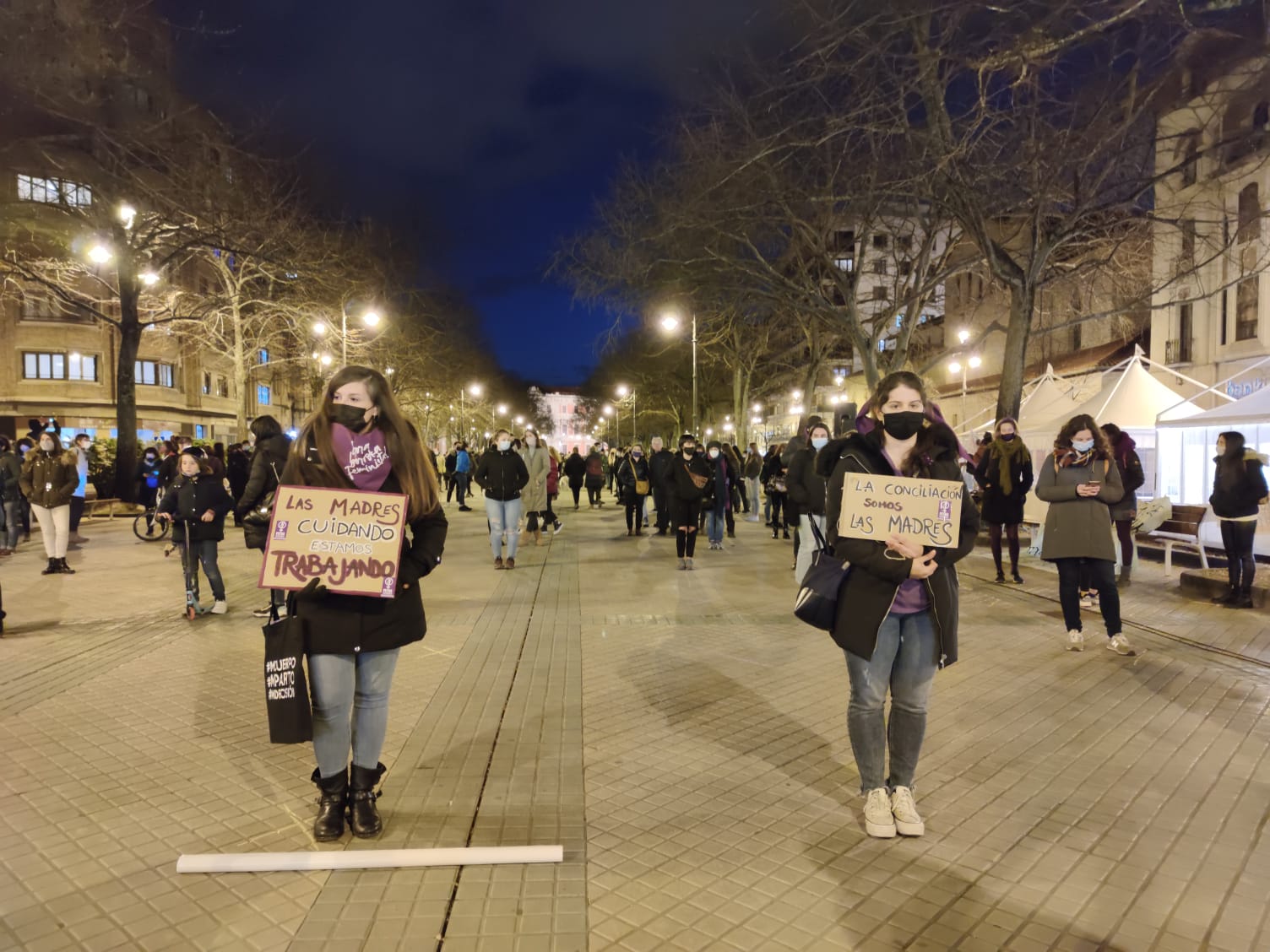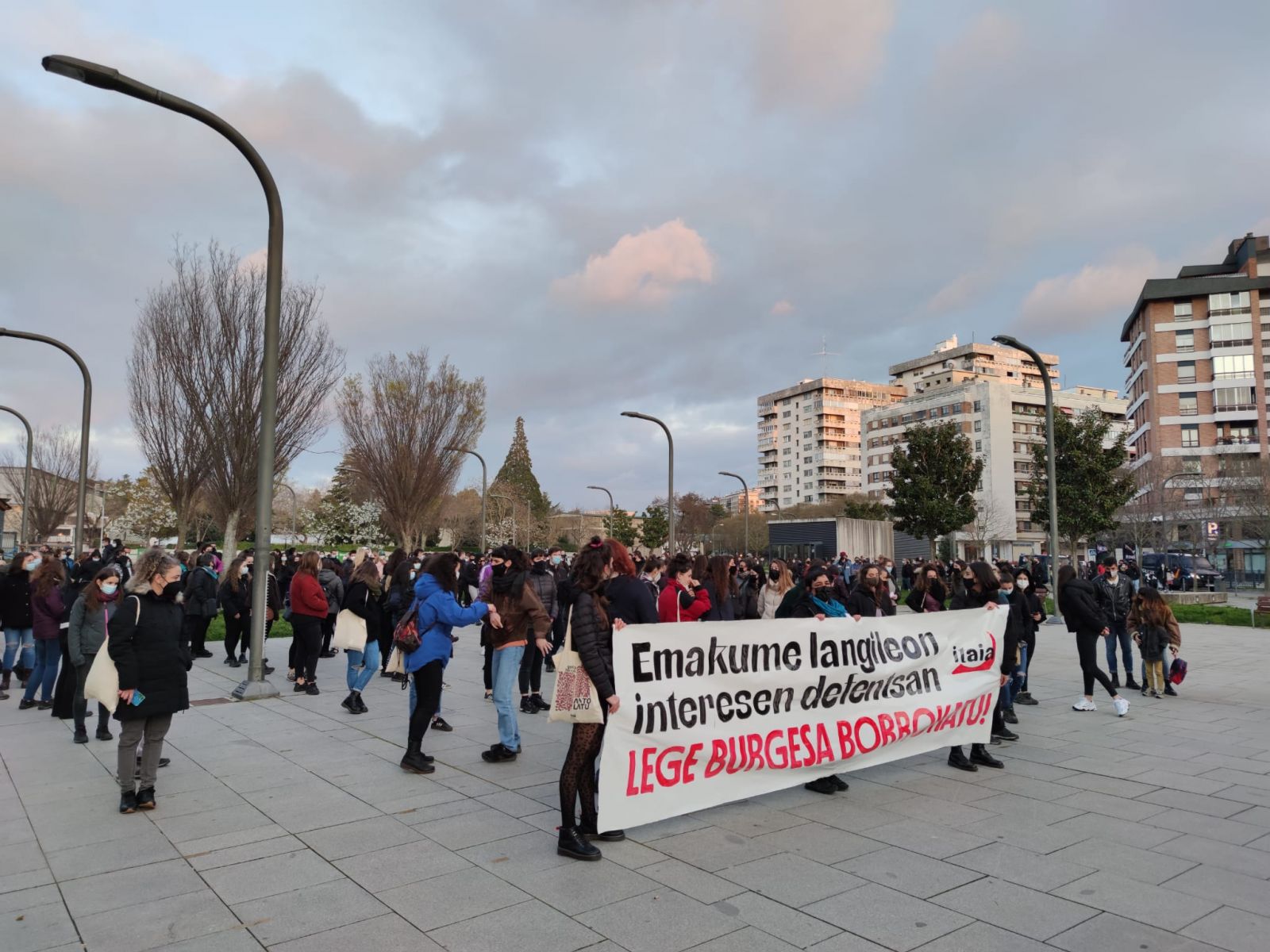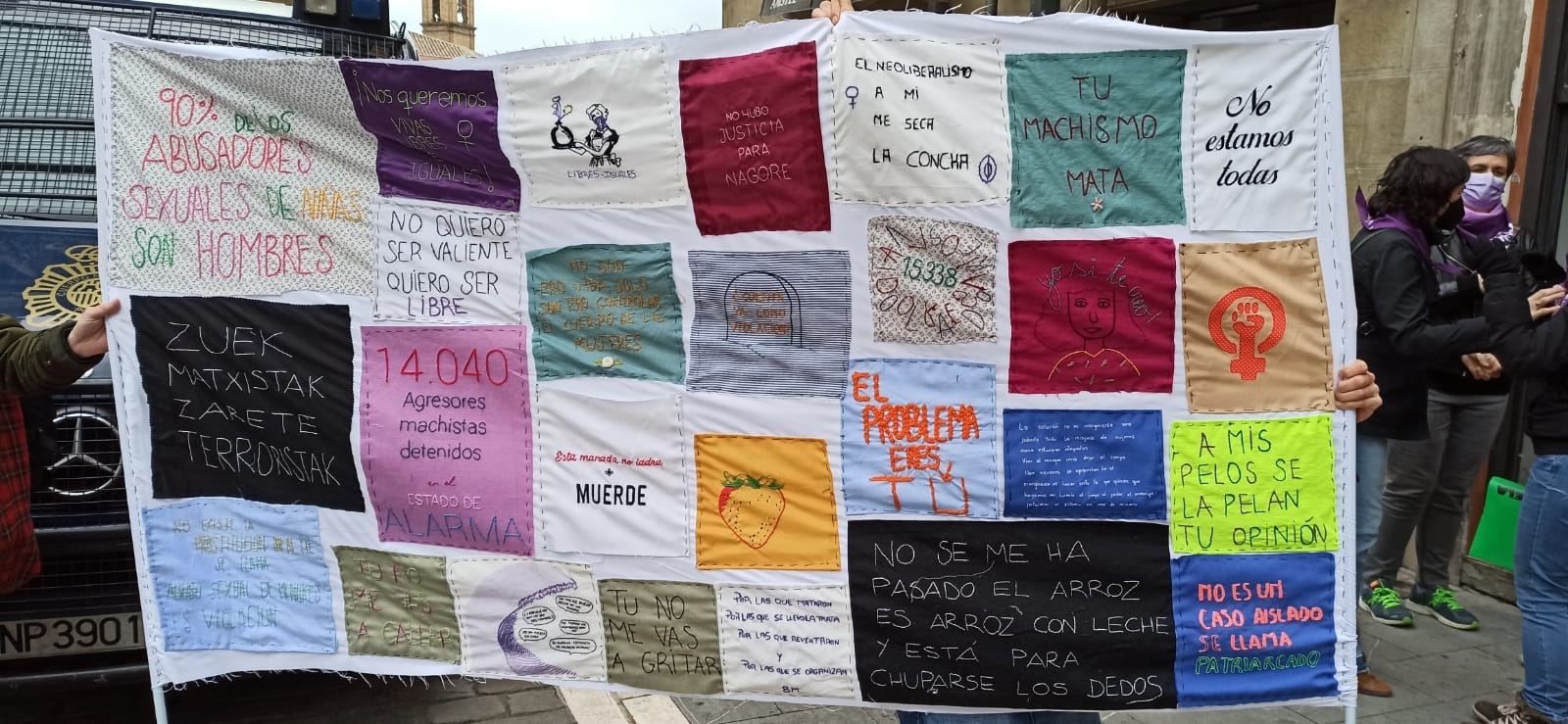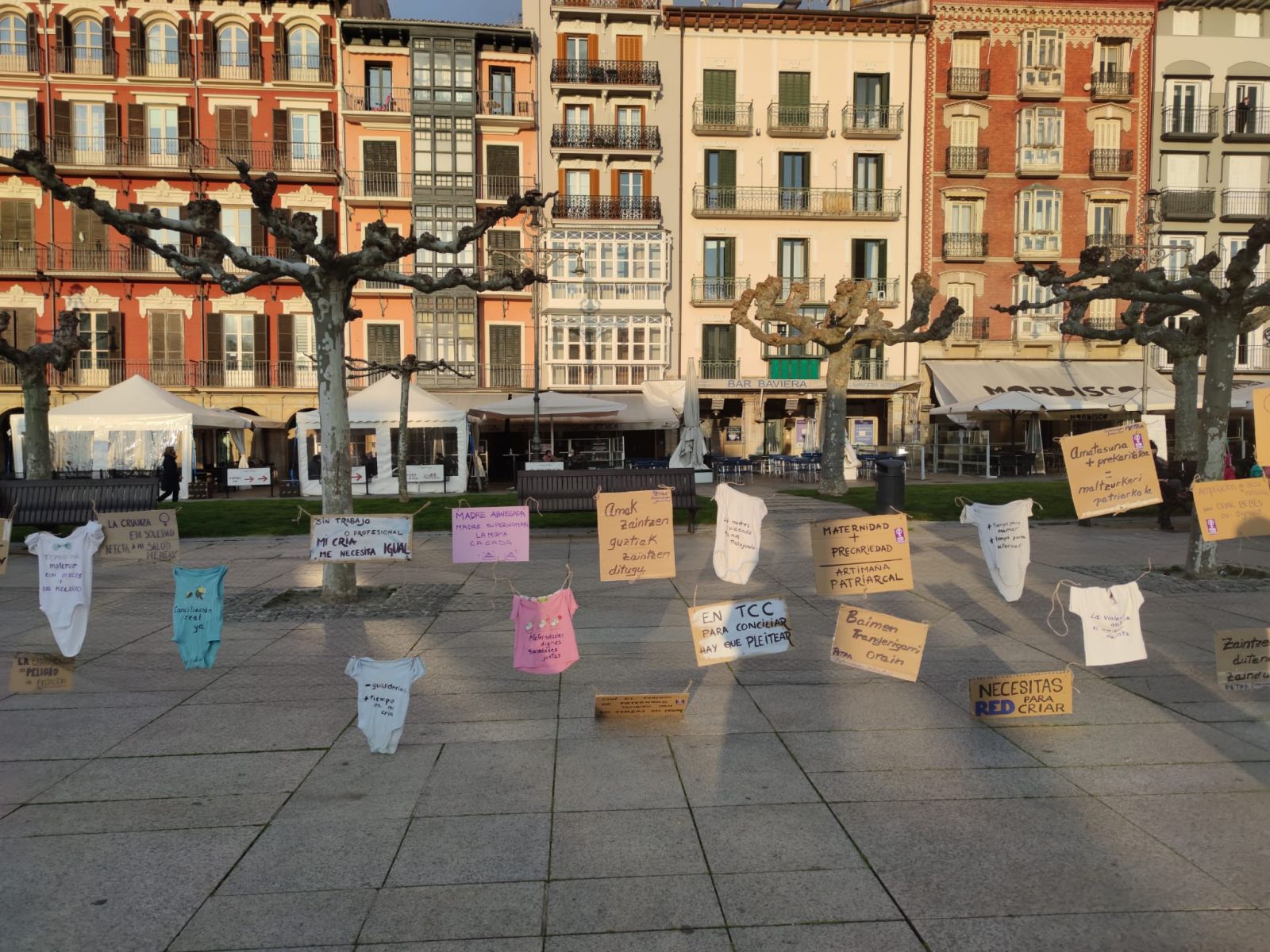
- The feminist movement in Navarre has taken to the streets of Pamplona on March 8 under the slogan 'Change everything, Arracalado System'. The feminist wave of recent years has once again shaken the streets and has come to the streets as a strong collective; on this occasion, to denounce what the plague has put on the table, claiming anti-racist and anti-capitalist feminism.

Although the pandemic marked on March 8 of this year, there were demonstrations yesterday in the region of Pamplona and throughout Navarre. The call has prioritized the decentralization of the movements and streets of women in Navarra, in 66 acts, alluding to the need to focus lives in towns, neighborhoods and cities. The epidemic has highlighted the need to place surveillance and life at the centre of public policies. It is not new: the most oppressed sectors are more oppressed. And the sectors that have put their body at the forefront of the coronavirus pandemic are very feminized. It is women who are in the front line: washing, caring, caring, healing.
In Pamplona/Iruña, women have left the street early in the morning and the day has begun in the Office of Foreign Affairs. They have concentrated on denouncing immigration policies and have called for the repeal of the Aliens Act. “We need to put an end to racism that permeates all social structures, put an end to the privileges of whiteness and recognize that all people have the same rights,” they said. Later, in the nursing home Ama Oblatas have claimed that care "is not business" and have demanded a "public care system". A comprehensive, public and free care system that guarantees the right of all people to be cared for. The demonstration took place in the Casco Viejo de Pamplona/Iruña and incidents have been recorded before the Parliament of Navarra. Several women have been chained to the site and the Foral Police has arrested a demonstrator, who has been arrested. He's already at liberty.
In the afternoon, most mobilizations have been recorded and a large number of women have met. The Socialist Women’s Organization Itaia has held a demonstration in defence of “the interests of working women”. Between 19:00 and 20:00 hours the towns and neighborhoods of the Region of Pamplona have been filled with demands. “The invisible has become visible during the pandemic and life is sustained from invisibility.” Thus has been expressed the Feminist Movement of the Region of Pamplona/Iruña. Again, custody has come to the forefront, and although at this time it has been shown that it is more necessary than ever, they have demanded their rights. “The health crisis we are experiencing has brought to light the old rags of the system. Health or economy, life or capitalism. Faced with this, we are clear: we fight for life, for a life that is worth living.” The feminist movement has opted for a community of collective care and has remembered the solidarity networks that were set up in the confinement, town to village and neighborhood to neighborhood.
The feminist movement has put the same system in the spotlight and called for solutions. To emerge from the crisis, the feminist solution has been based on the demand for living and caring: organizing, creating networks, knowing and debating. The virus has not been able to stop the struggle of women; it is more, it has given "more reasons than ever" to fight. And they have recalled the need to remain united in the face of the pandemic: women will continue to unite, weaving links and networks, because they want to change everything: “We came to change everything, we have to change the structure of society, because this system does not work. We want everything and they don’t stop us.” They have been clear and clear. Because feminism is clear that the current crisis has not started with the pandemic, and will not be silent or standing. The virus has further spread the existing cracks: “The crack has deepened.” That is why it is more necessary than ever to get out on the street, because the gap is unstoppable.




